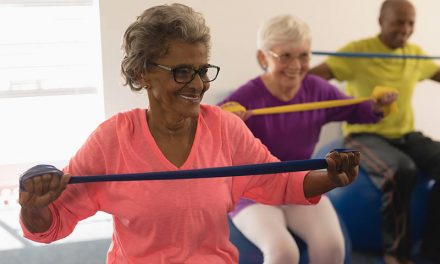The importance of lifelong learning
We normally associate learning with going to school or university, or training for a career. But we need to embrace the concept of lifelong learning, especially as we get older. Because, maintaining an active and stimulated mind is as essential for elders as physical exercise. Continuing to learn new skills or fostering an enduring curiosity about the world around us throughout our lives offers numerous benefits.
Lifelong learning improves cognitive health
Studies have shown that mentally stimulating activities can reduce the risk of cognitive decline and dementia in older adults, as well as contributing to overall mental well-being. Learning new skills or exploring different subjects can also reignite a sense of purpose and curiosity.
Many retirees find fulfillment in hobbies they never had time for during their working years, or delving into subjects they’ve always been curious about. This pursuit of knowledge adds richness to life and can lead to new social connections and friendships with like-minded individuals.
For older persons, who can feel a bit left out and bewildered by new and different ways of doing things (for example, being able to consult a virtual doctor online), keeping up-to-date with advancements in technology, healthcare, and other fields that directly impact their lives is very important. Whether it’s understanding how to use new gadgets, staying informed about health trends, or learning about financial management for retirement, ongoing education empowers elders to navigate and adapt to an ever-changing world.
Self-confidence, personal growth and a sense of purpose
Mastering a new skill, or being able to talk with authority on a subject improves our self-confidence and outlook on life. Older learners often discover hidden talents or passions they never knew they had, leading to a renewed sense of purpose and fulfilment in their later years.
There may also be physical and social benefits for elders who are encouraged to learn a new skill like dancing, playing bridge or joining a debating circle.
Here are 10 ways to stimulate learning and curiosity throughout life:
1. Join a class
Many community centres, libraries, and senior centres offer classes on a wide range of subjects, from art and music to technology and history. These classes have the added benefit of providing opportunities to meet others with similar interests.

2. Learn online
Platforms like Udemy offer free or affordable courses on almost any topic imaginable. Older learners can study at their own pace and delve into subjects they find intriguing, from personal development to photography, music and Information Technology.
For a small subscription, the app Blinkist offers daily 15 minute book summaries on over 6 500 non-fiction titles to stimulate interest.
3. Attend seminars and meetings
Look for local seminars or meetings offering presentations on interesting topics. These events often feature experts who provide insights and practical knowledge, and they can be great places to interact with others who share similar interests.
4. Read widely
Books, magazines, and online articles offer an excellent way to continue learning. Whether it’s fiction that expands the imagination, or non-fiction that delves into history or current affairs, reading broadens your mind and keeps you interested and involved.

5. Take up a creative hobby
Activities like painting, gardening, writing or learning a musical instrument not only provide enjoyment, but also stimulate creativity. You can learn new techniques, experiment with different styles, and express yourself artistically.
6. Stay informed
Read newspapers, watch documentaries, listen to podcasts, or follow educational YouTube channels to learn about new subjects or stay updated on current events and trends. Join or follow Facebook groups with interesting content, for example 1860 Heritage Centre.
7. Engage in discussions
Something as simple as joining a book club encourages critical thinking and allows for the exchange of ideas with peers. These interactions can lead to deeper understanding and new perspectives on various topics.

8. Volunteer or mentor
Sharing knowledge and skills through volunteering or mentoring roles can be a fulfilling way to continue learning while making a positive impact in the community.
For information about volunteering at Tafta, please call our volunteer co-ordinator at 031 332-3721.
9. Travel and explore
Traveling (even just within your own city or South Africa) provides opportunities to learn about different places, cultures and history. For example, if you live in Durban, you may be interested in Durban Walking Tours. Visiting museums and historical sites, and trying local cuisine increases our knowledge and broadens our experiences.
10. Learn about new technology
Embrace technology to stay connected and informed. Learn how to use social media, video calls, and apps to engage with family, friends, and online communities sharing common interests.
Follow Tafta on social media for more news and updates, or join our email address list to receive regular updates.
By integrating these activities into daily life, elders can maintain a vibrant and intellectually stimulating lifestyle. Lifelong learning not only enhances personal growth and well-being but also fosters a deeper appreciation for the richness and diversity of the world around us.






